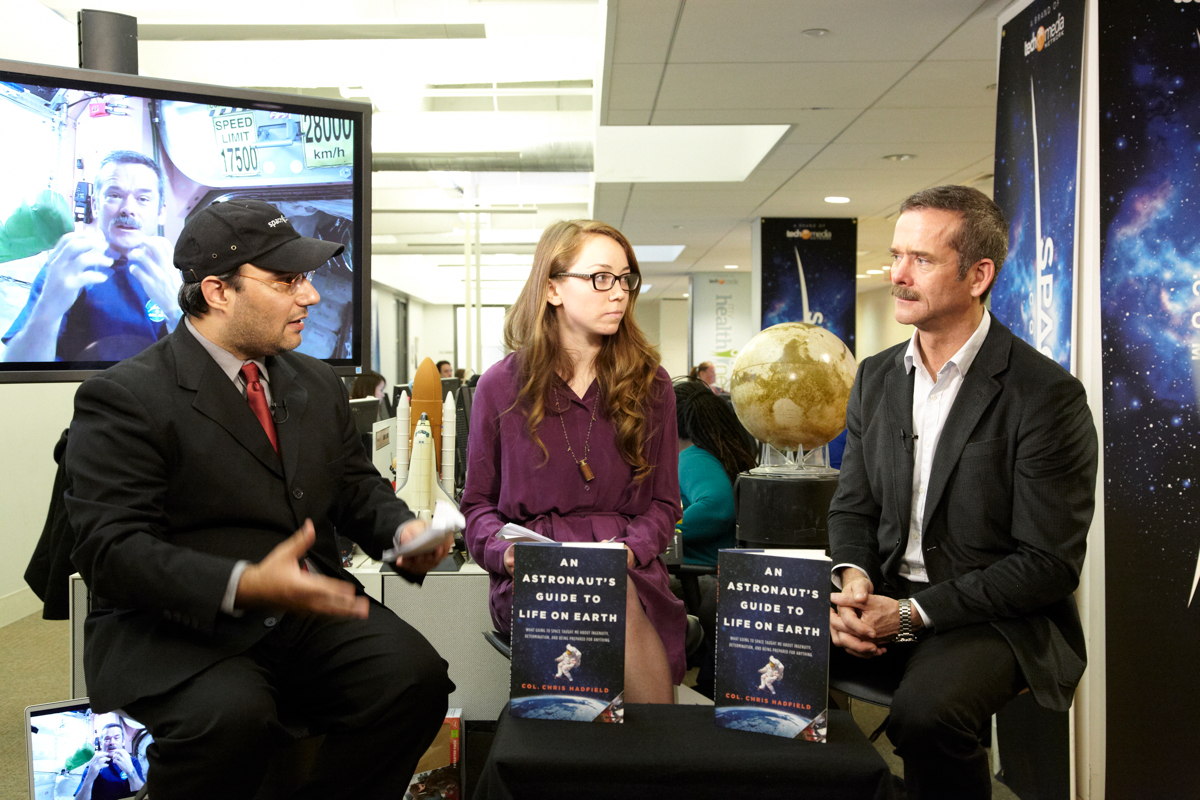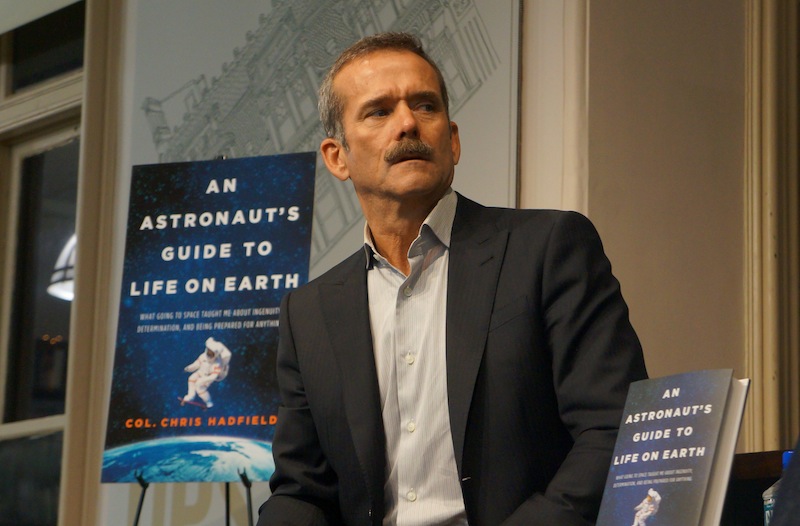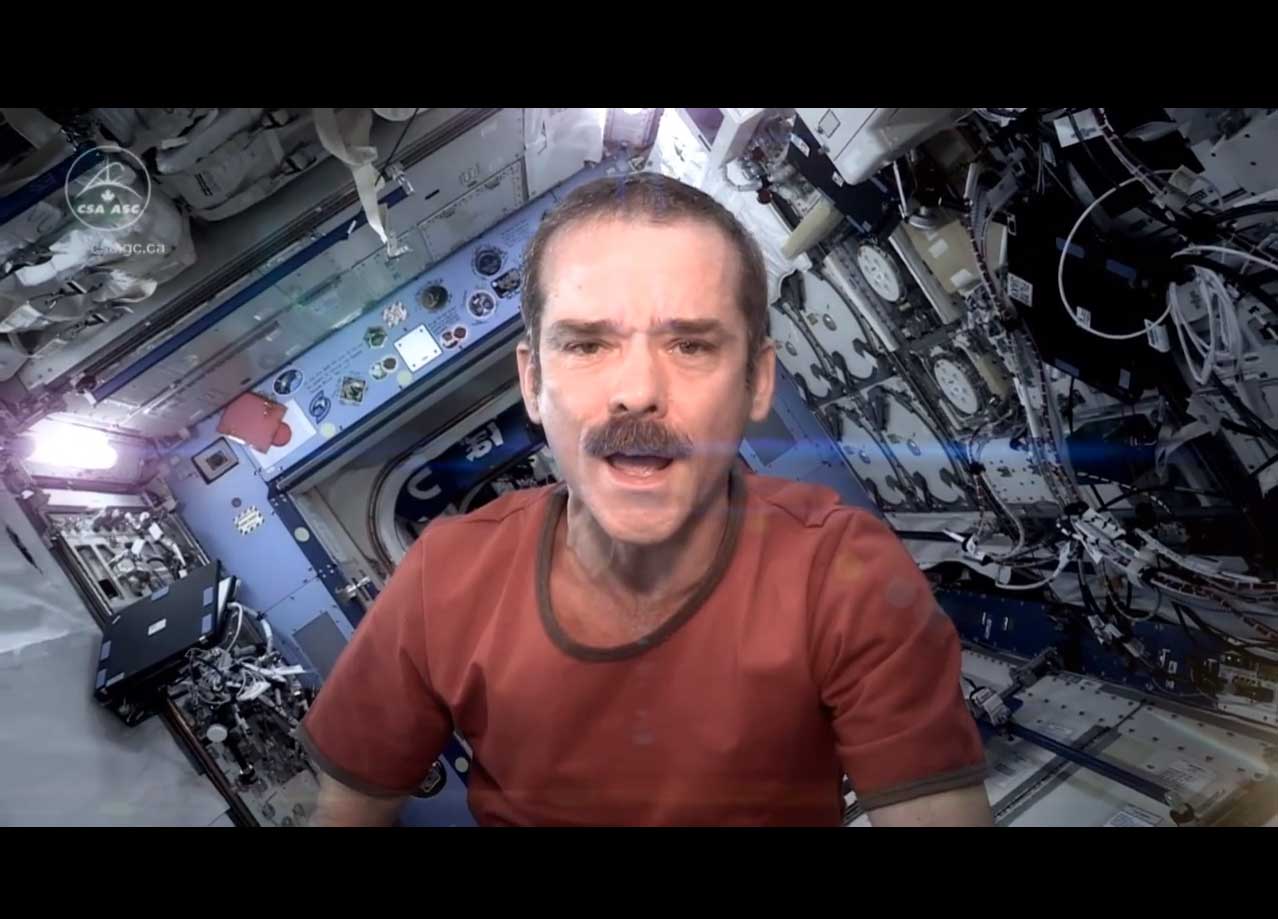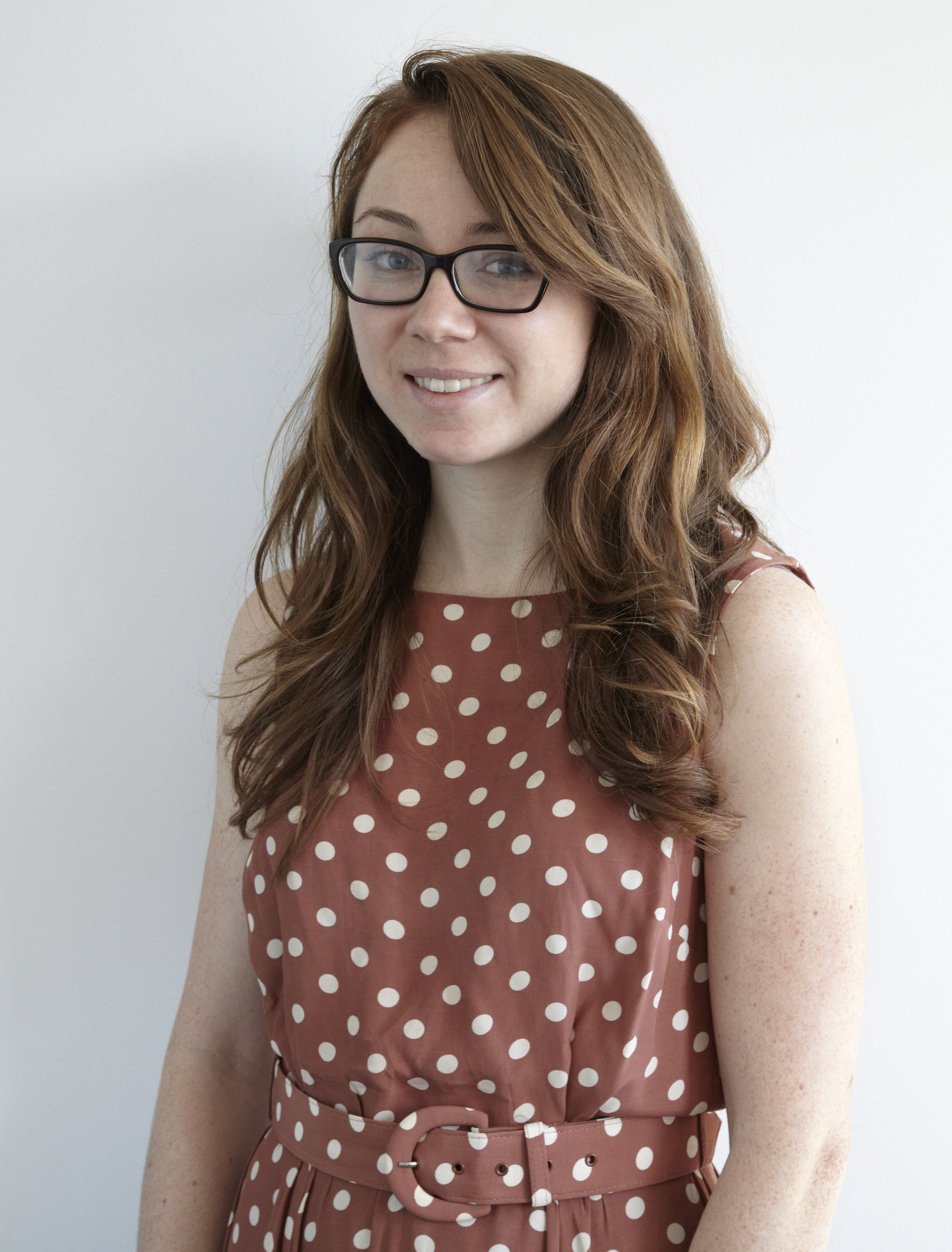From Space Cooking to Disaster Plans: Astronaut Chris Hadfield Reveals Cosmic Life Lessons (Video)

NEW YORK — You'd be hard-pressed to catch astronaut Chris Hadfield unprepared.
Once faced with the possibility of sharing a stage with Elton John at an air show, the guitar-playing space traveler made sure he knew "Rocket Man," just in case he was invited to perform an impromptu duet with the English musician. (He wasn't.)
Years earlier, during his grueling jet training to become a fighter pilot for the Canadian military, Hadfield would drive the desolate roads of Saskatchewan to familiarize himself with the landscape that he'd be flying over during critical tests — tests he knew might make or break his shot at becoming an astronaut, even though Canada didn't have a space program at the time. [Astronaut Chris Hadfield in Space: 8 Amazing Moments]
Today, when he walks into a crowded elevator or buckles his seat belt on a plane, Hadfield reflexively thinks about what his role would be in the case of a crisis.

That's the kind of mind-set a 21-year career as an astronaut will instill. In his new book, "An Astronaut's Guide to Life on Earth" (Little, Brown and Co., 2013), Hadfield reflects on his 166 days in orbit — and his much longer time spent training on our planet — to impart some of the broader wisdom learned through preparing to do inherently terrifying things like riding a rocket into space, where a lack of preparation could have grave consequences.
Sharing the wonder of space
"What was important for me, was to try and show people the opportunities that exist for them as a result of the stuff we do in space, whether it’s a career choice for them, whether it's technology that we develop that exists for them, and maybe more importantly, something we learned from flying in space or preparing to fly in space that might be useful for someone else to learn," Hadfield told SPACE.com of his book when he visited our office for an interview on Oct. 31.
Get the Space.com Newsletter
Breaking space news, the latest updates on rocket launches, skywatching events and more!
But beyond communicating hard-learned lessons, Hadfield has also devoted himself to communicating the wonder of space. He retired from the Canadian Space Agency this past summer after returning from a five-month post aboard the International Space Station. During that voyage — his third spaceflight — Hadfield became Canada's first commander of the orbiting lab. But some of those on the ground might be most familiar with him because of the viral videos he made showing how microgravity complicates the most mundane experiences, from cooking spinach to shedding a tear to playing a guitar. [Life in Space: Astronaut Chris Hadfield's Video Guide]

"I know from my experience talking in schools and everywhere around the world that people are interested in people," Hadfield told SPACE.com. "They're interested in the minutiae of how you actually do these things."
Back in April, two Canadian students asked Hadfield to demonstrate what would happen if he were to wring out a wet towel in space, which turned into a "nice visual experiment," he said, and a video that has now been viewed more than 9 million times on YouTube.
"I just brought the towel right up to the camera and started twisting, and it's so non-intuitive, and therefore it's so instructional as to what happens, because the water behaves so differently than everyone's experiences are — it's on my hands, it looks like a bunch of jelly," Hadfield said. "I was just delighted with the huge level of response that came as a result."
How space changes you
SPACE.com reader Nancy Buron was wondering whether Hadfield's experiences in space altered his priorities, personal or political.
"I think for the first astronauts, the answer would be absolutely yes," Hadfield said. "They were kind of plucked out of being a test pilot, they were very rapidly trained, and then put on world-renowned missions."
Many of those pioneers were not psychologically prepared for the visceral experience of spaceflight, where they could look back at the world and cover it up with their thumb, Hadfield explained.
"Nor were they prepared for what the world was going to treat them like when they got home," Hadfield said. "Suddenly they're the ultimate rock star hero with a ticker-tape parade for the rest of their life."
Astronauts are much better prepared today, thanks in part to discussions with those spaceflight trailblazers, and now astronauts have a robust psychological support system and the personal changes they undergo are much more gradual and predictable, Hadfield said.
Nonetheless, the Canadian spaceflyer says the experience does change you, "in that it deepens you a little bit. It makes you more resolved, and I think for every one of us it kind of reaffirms whatever our set of beliefs were at the get-go."
Death and disaster
Astronauts today are asked to confront their mortality in a big way during training, by participating in intensive simulations to develop solutions to system failures and technical catastrophes, which could be truly disastrous without the right preparation.
Spaceflyers are even put through "contingency sims," where they play out what might happen if one of them were to die in space, from improvising a body bag to holding a mock press conferences with their spouses present.
"You'd think it would make you feel sort of grim if all you ever deal with are emergencies and disasters, deaths and things, but in truth it's actually really calming," Hadfield said. "Instead of everybody just going, 'Boy, I hope that never happens'… instead, you go, 'Well, I hope that never happens but if it does we all know what we're doing. Next. What's the next thing? C'mon, gimme the next thing?' — like Rocky Balboa — 'Sure you hit me on the job but I'm OK. Do it again.'"
What's next for the astronaut? Now back on Earth six months after his last mission, Hadfield has been in high demand on the public speaking circuit. He's also planning a move back to Canada and heading into the classroom; the now-retired spaceflyer landed a professorship at the University of Waterloo in Ontario.
Follow Megan Gannon on Twitter and Google+. Follow us @SPACEdotcom, Facebook or Google+. Originally published on SPACE.com.
Join our Space Forums to keep talking space on the latest missions, night sky and more! And if you have a news tip, correction or comment, let us know at: community@space.com.

Megan has been writing for Live Science and Space.com since 2012. Her interests range from archaeology to space exploration, and she has a bachelor's degree in English and art history from New York University. Megan spent two years as a reporter on the national desk at NewsCore. She has watched dinosaur auctions, witnessed rocket launches, licked ancient pottery sherds in Cyprus and flown in zero gravity on a Zero Gravity Corp. to follow students sparking weightless fires for science. Follow her on Twitter for her latest project.









